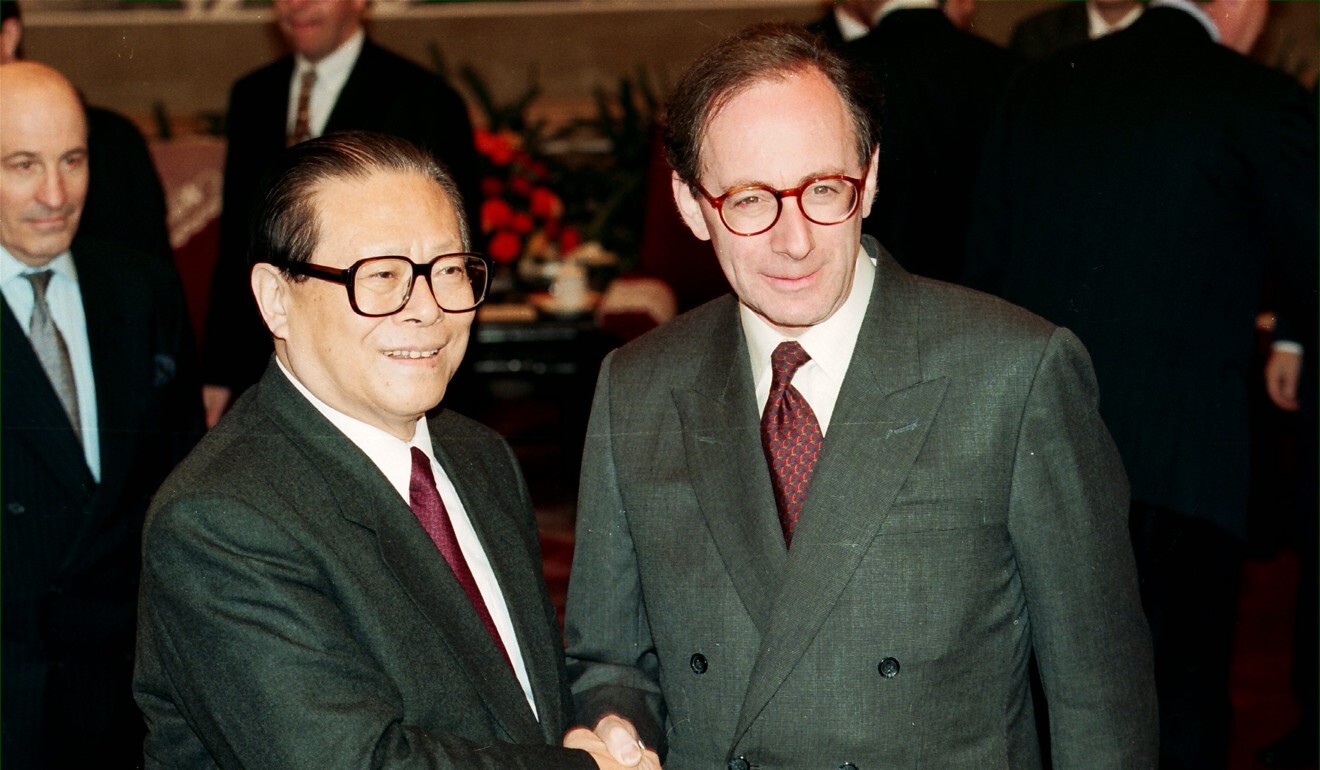
Hong Kong’s last governor Chris Patten advised then British leader against attending 1997 handover to avoid ‘embarrassment’, archives show
- Tensions over Tiananmen Square crackdown and Jiang Zemin’s rise in wake of incident spark last governor’s unwillingness for prime minister to shake hands with Chinese leader
- Declassified files also show strained ties between British and Tung Chee-hwa, the city’s first chief executive, said to be ‘following closely the Chinese line’
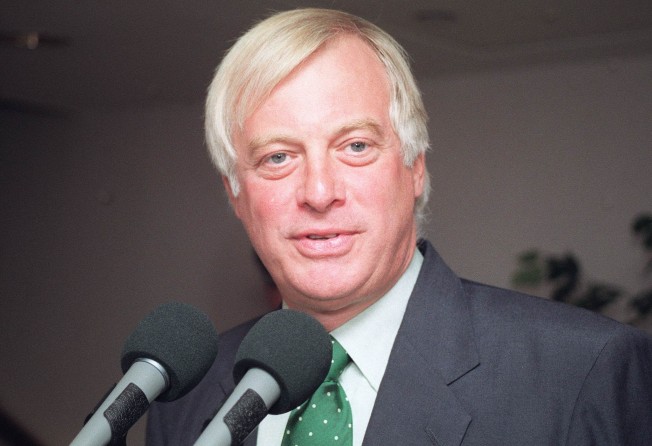
Hong Kong’s last governor Chris Patten had advised then British prime minister John Major against attending the city’s handover ceremony in 1997 to avoid the “embarrassment” of shaking hands with Chinese president Jiang Zemin, according to historical records.
Newly declassified British files show that Patten and then foreign secretary Malcolm Rifkind were once divided on whether Major should attend the ceremony to mark Hong Kong’s return to Chinese rule.
In a note to Major on January 14, 1997, Philip Barton, then private secretary to the prime minister, said: “Chris Patten believes that you should not attend, fearing there may be demonstrations and that you could be embarrassed, for example by having to shake Chinese president Jiang Zemin’s hand,” Barton wrote.
“This has been our view hitherto. However the Foreign Secretary now believes that you should go to demonstrate to the wider world UK interest in the fate of Hong Kong after the handover,” Barton wrote.
Jiang was made Communist Party general secretary after the 1989 Tiananmen Square crackdown. He rose to the position after reform-minded general secretary Zhao Ziyang was ousted in the wake of the incident which sparked global controversy.

Two days later, Major and Rifkind agreed there was no need to decide on whether the prime minister should attend the ceremony at the time, leaving the decision till after the May 1997 British general election.
Major did not attend the handover ceremony held at the Hong Kong Convention and Exhibition Centre in Wan Chai on June 30, 1997. Some 4,000 guests from around the world witnessed the final lowering of the British flag and the raising of the Chinese five-star flag during the event, which started at 11.30pm.
Instead, the British delegation was helmed by Tony Blair, who led the Labour Party to beat Major’s Conservative Party in elections, and Prince Charles.
The records were declassified by Britain’s National Archives in London this week for public inspection.
Blair did shake hands with Jiang during a meeting held hours before the handover ceremony.
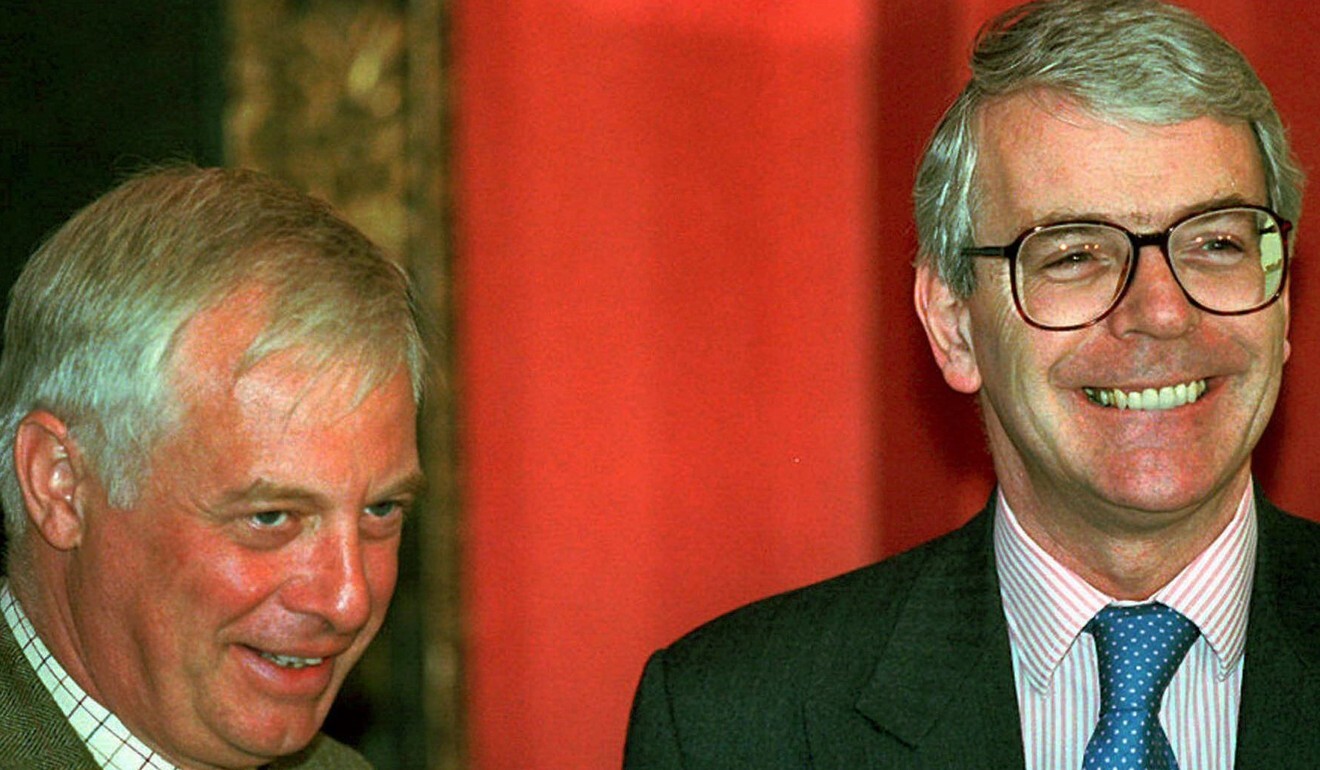
The recently released files also revealed that in the months ahead of Hong Kong’s return to Chinese rule in 1997, Anson Chan Fang On-sang, the No 2 official of the pre-handover government, tried to persuade Tung Chee-hwa, the city’s first chief executive, to avoid following Beijing’s line too closely.
In a letter to Major on February 20, 1997, Rifkind said Tung adopted a conservative and pro-Beijing line on sensitive issues, instead of trying to assert Hong Kong’s autonomy after his election in December 1996.
“Mr Tung has so far followed closely the Chinese line. His record so far has disappointed hopes that he would stand up for Hong Kong in dealing with China,” Rifkind wrote.
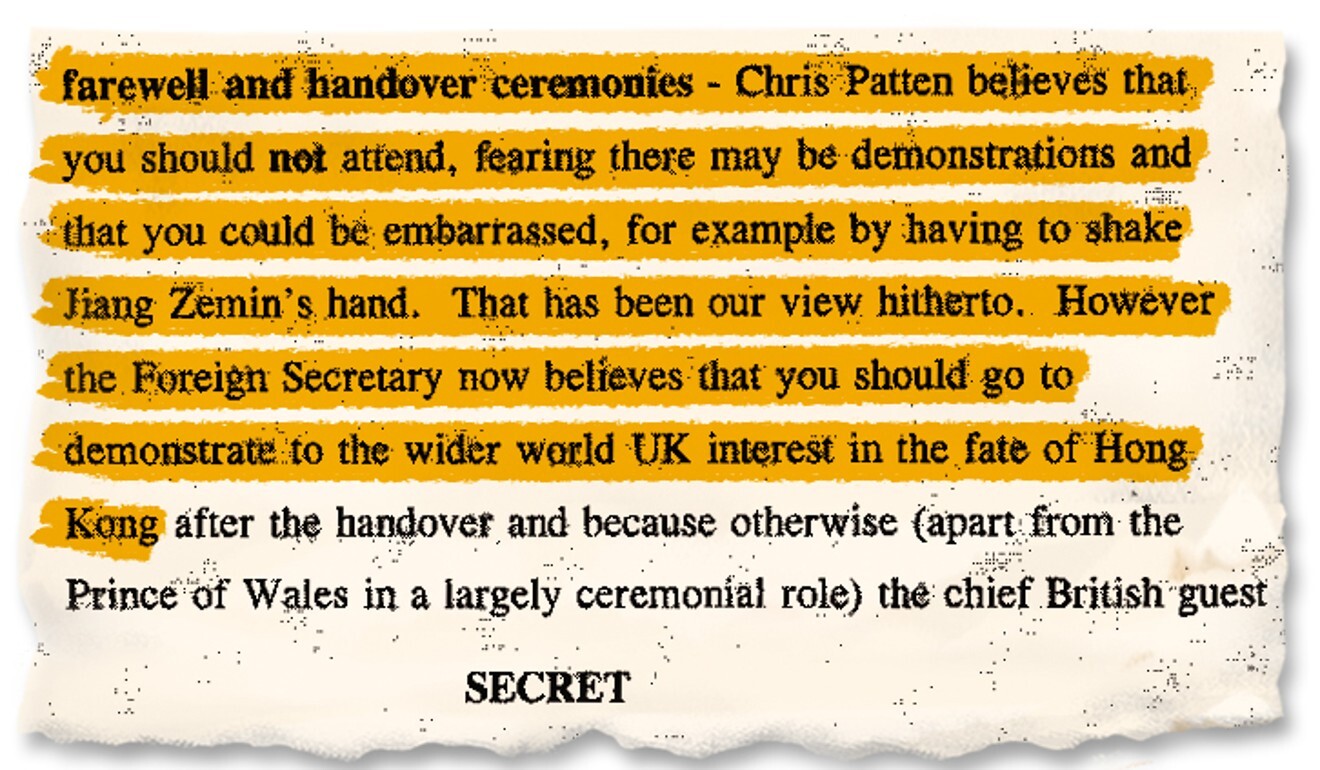
Tung backed Beijing’s decision in 1996 to set up a provisional legislature after the derailing of arrangements under which members of the final term of the Legislative Council before the handover were to become the first lawmakers of the special administrative region.
“Anson Chan and her colleagues are working hard to try to persuade him to take a slightly more independent line, but it is hard going,” Rifkind wrote. “If they were to conclude it was impossible the consequences would be very serious.”
Chan served as chief secretary before and after the handover, retiring in 2001 amid reports of souring relations with Tung. Her departure came as a surprise as she had pledged to continue in her position until 2002.
Since 2005, Chan had been an outspoken campaigner for constitutional reform in the city.
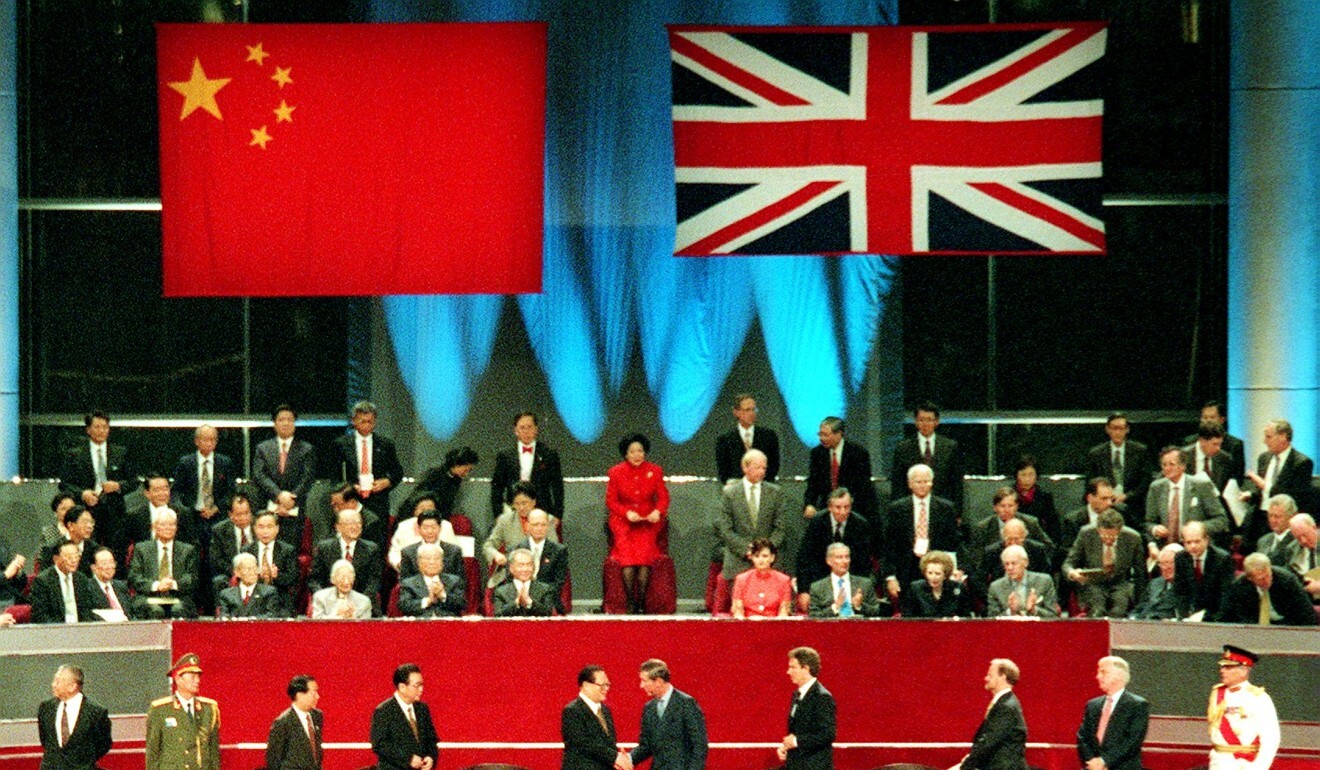
The tension between Patten and Tung in the months ahead of the handover was also revealed in the declassified records.
Patten gave his impression of Tung in a telegraph to Rifkind on March 3, 1997 after his meeting with the chief executive-designate earlier in the day.
“He is stubborn as well as affable, indecisive as well as headstrong and for someone said to be cautiously conservative, he does from time to time paint himself impetuously into corners,” Patten wrote. “I hope that the Hong Kong civil service will be able to work more closely with him before and as well of course after the handover.
“We should be able to avoid too much unseemly bickering before our departure. But I am not sure how much we will be able to influence him.”
During a meeting with Patten on April 4, 1997, Tung turned down the governor’s invitation to attend the opening ceremony of the Lantau Link, comprising the Tsing Ma Bridge and the cable-stayed Kap Shui Mun Bridge, on April 27 that year.
It was one of the core projects of the new Hong Kong International Airport in Chek Lap Kok, which was opened in 1998.
In a telegram to Sherard Cowper-Coles, then head of the Hong Kong department of Britain’s Foreign and Commonwealth Office, on April 4, 1997, Martin Dinham, Patten’s personal adviser at the time, said Tung explained that it would be difficult for him to attend the event and other similar occasions while disagreements were brewing on issues such as the provisional legislature.
Tung later publicly said he felt his time was better spent visiting officials in Guangdong.